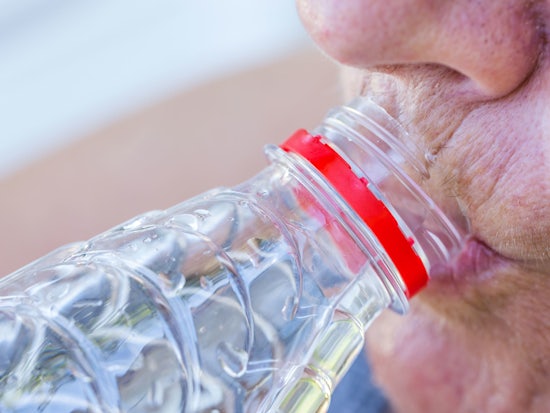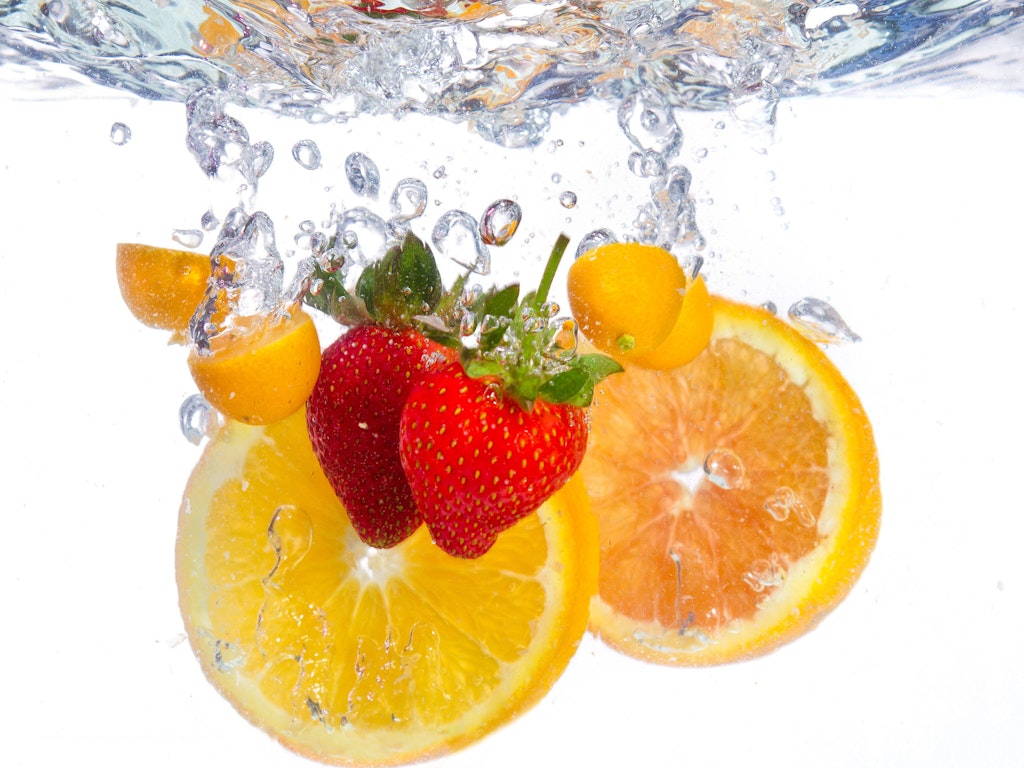How to stay hydrated in the heat
As we age, the amount of water we hold in our body decreases. This means it’s actually easier for an older person to become dehydrated because dehydration will start to affect them with less water loss.

It’s important to drink periodically even if you don’t feel that thirsty (Source: Shutterstock)
Exercise, medications, kidney or other diseases, obesity, swallowing disorders, a fear of incontinence or mobility difficulties in getting to the toilet are also other factors which may lead to dehydration in seniors.
However, it is imperative you remain hydrated, particularly in hot weather. As well as running the risk of heat exhaustion and heat stroke, dehydration in older people can also lead to other serious problems such as urinary tract infections and low blood pressure, which will also increase the risk of falling.
Drinking the recommended amount of water each day, around 2.6 litres (about 10 cups) for men and 2.1 litres (about 8 cups for women), will not only keep your organs and body working properly, but it has also been shown to reduce the risk of fatal coronary heart disease among older adults.
With the summer months upon us, it’s all too easy to become dehydrated, so here are some tips to help you keep your fluid levels up.
Drink water
The most obvious way to stay hydrated is to drink water! When it’s warm, you do need to drink more as even if you don’t notice it, you will be losing more water to keep your body cool.
Little and often is the key, drinking periodically even if you don’t feel that thirsty. Some people find using water bottles filled to the recommended daily fluid amount helps ensure they drink enough water. Or set a timer on your computer or smartphone to remember to take regular water breaks.
If you are not keen on drinking straight water, try adding fresh mint, cucumber slices, lemon or other fruit to give it a bit of flavour.

Avoid coffee, alcohol and high-protein drinks
These types of fluid actually have a diuretic affect, meaning you’ll lose more fluid if you drink them. These drinks do not count towards your daily fluid intake so be sure to drink other water-based beverages on top of this.
Drink after exercise
Whether it is hot or not, you will always lose more fluid after exercise. Ensure you drink a little bit more if you’ve been exercising or even when doing some gardening or household chores – no matter how gentle it is.
Eat foods with a high water content
As well as drinking plenty of fluid, eat foods with a high water content such as cucumber, celery, radishes and tomatoes. Just about all fruit has a lot of water in it, although, along with tomatoes, watermelon, strawberries, grapefruit, kiwi, oranges and cantaloupe are particularly high. Soups, jelly and shakes are also a good way to up your fluid intake.
Recognise signs of dehydration
It’s important to recognise signs of dehydration so you know when to take action. If you’re feeling dizzy, faint, tired, or have a headache and cramping, you may be dehydrated and need more fluids. If symptoms continue, contact your medical practitioner.
Monitor your urine colour
Although it’s not particularly pleasant looking in the toilet bowl, the colour of your urine will indicate whether you need to drink more water. If you are sufficiently hydrated, your urine will be a pale yellow colour. If your urine is dark yellow or amber coloured you need to drink more water.
Stay inside and keep cool
If you are hot, you will sweat more which will result in more fluid loss. Ideally stay inside on hot days, with fans and/or air conditioning, drawn curtains and blinds down. Applying a damp cloth to your forehead or nape of the neck will also help you keep cool. Make sure you plan any outdoor activities, such as gardening for early morning or late afternoons and wear light loose-fitting clothing.






















